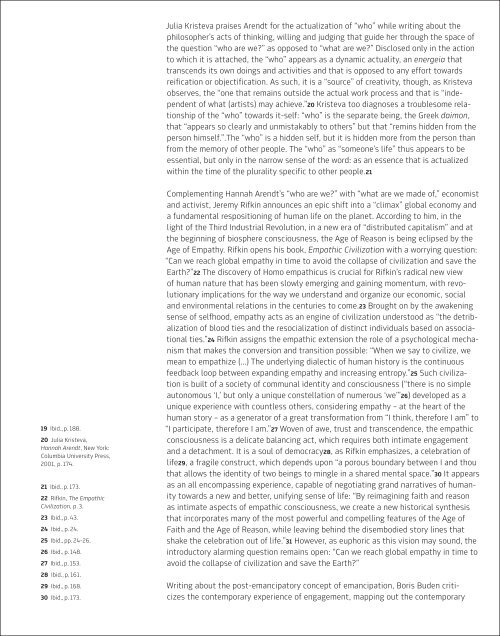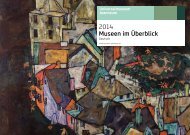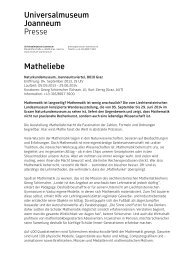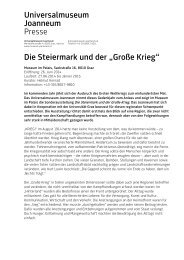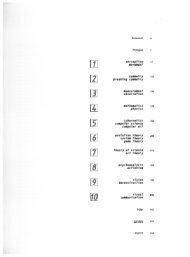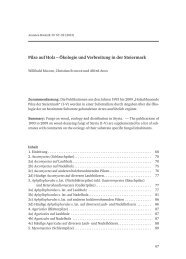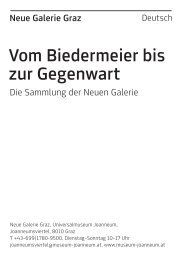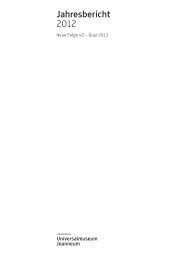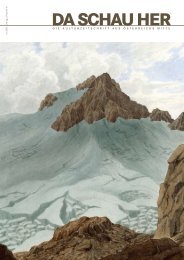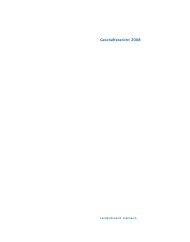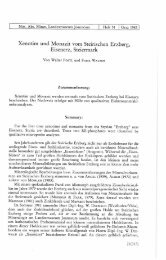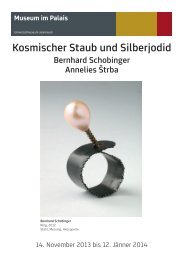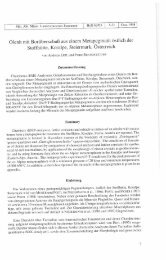Human Condition - Universalmuseum Joanneum
Human Condition - Universalmuseum Joanneum
Human Condition - Universalmuseum Joanneum
Sie wollen auch ein ePaper? Erhöhen Sie die Reichweite Ihrer Titel.
YUMPU macht aus Druck-PDFs automatisch weboptimierte ePaper, die Google liebt.
19 Ibid., p. 188.<br />
20 Julia Kristeva,<br />
Hannah Arendt, New York:<br />
Columbia University Press,<br />
2001, p. 174.<br />
21 Ibid., p. 173.<br />
22 Rifkin, The Empathic<br />
Civilization, p. 3.<br />
23 Ibid., p. 43.<br />
24 Ibid., p. 24.<br />
25 Ibid., pp. 24-26.<br />
26 Ibid., p. 148.<br />
27 Ibid., p. 153.<br />
28 Ibid., p. 161.<br />
29 Ibid., p. 168.<br />
30 Ibid., p. 173.<br />
Julia Kristeva praises Arendt for the actualization of “who” while writing about the<br />
philosopher’s acts of thinking, willing and judging that guide her through the space of<br />
the question “who are we?” as opposed to “what are we?” Disclosed only in the action<br />
to which it is attached, the “who” appears as a dynamic actuality, an energeia that<br />
transcends its own doings and activities and that is opposed to any effort towards<br />
reification or objectification. As such, it is a “source” of creativity, though, as Kristeva<br />
observes, the “one that remains outside the actual work process and that is “independent<br />
of what (artists) may achieve.”20 Kristeva too diagnoses a troublesome relationship<br />
of the “who” towards it-self: “who” is the separate being, the Greek daimon,<br />
that “appears so clearly and unmistakably to others” but that “remins hidden from the<br />
person himself.”.The “who” is a hidden self, but it is hidden more from the person than<br />
from the memory of other people. The “who” as “someone’s life” thus appears to be<br />
essential, but only in the narrow sense of the word: as an essence that is actualized<br />
within the time of the plurality specific to other people.21<br />
Complementing Hannah Arendt’s “who are we?” with “what are we made of,” economist<br />
and activist, Jeremy Rifkin announces an epic shift into a “climax” global economy and<br />
a fundamental respositioning of human life on the planet. According to him, in the<br />
light of the Third Industrial Revolution, in a new era of “distributed capitalism” and at<br />
the beginning of biosphere consciousness, the Age of Reason is being eclipsed by the<br />
Age of Empathy. Rifkin opens his book, Empathic Civilization with a worrying question:<br />
“Can we reach global empathy in time to avoid the collapse of civilization and save the<br />
Earth?”22 The discovery of Homo empathicus is crucial for Rifkin’s radical new view<br />
of human nature that has been slowly emerging and gaining momentum, with revolutionary<br />
implications for the way we understand and organize our economic, social<br />
and environmental relations in the centuries to come.23 Brought on by the awakening<br />
sense of selfhood, empathy acts as an engine of civilization understood as “the detribalization<br />
of blood ties and the resocialization of distinct individuals based on associational<br />
ties.”24 Rifkin assigns the empathic extension the role of a psychological mechanism<br />
that makes the conversion and transition possible: “When we say to civilize, we<br />
mean to empathize (…) The underlying dialectic of human history is the continuous<br />
feedback loop between expanding empathy and increasing entropy.”25 Such civilization<br />
is built of a society of communal identity and consciousness (“there is no simple<br />
autonomous ‘I,’ but only a unique constellation of numerous ‘we’”26) developed as a<br />
unique experience with countless others, considering empathy – at the heart of the<br />
human story – as a generator of a great transformation from “I think, therefore I am” to<br />
“I participate, therefore I am.”27 Woven of awe, trust and transcendence, the empathic<br />
consciousness is a delicate balancing act, which requires both intimate engagement<br />
and a detachment. It is a soul of democracy28, as Rifkin emphasizes, a celebration of<br />
life29, a fragile construct, which depends upon “a porous boundary between I and thou<br />
that allows the identity of two beings to mingle in a shared mental space.”30 It appears<br />
as an all encompassing experience, capable of negotiating grand narratives of humanity<br />
towards a new and better, unifying sense of life: “By reimagining faith and reason<br />
as intimate aspects of empathic consciousness, we create a new historical synthesis<br />
that incorporates many of the most powerful and compelling features of the Age of<br />
Faith and the Age of Reason, while leaving behind the disembodied story lines that<br />
shake the celebration out of life.”31 However, as euphoric as this vision may sound, the<br />
introductory alarming question remains open: “Can we reach global empathy in time to<br />
avoid the collapse of civilization and save the Earth?”<br />
Writing about the post-emancipatory concept of emancipation, Boris Buden criticizes<br />
the contemporary experience of engagement, mapping out the contemporary


